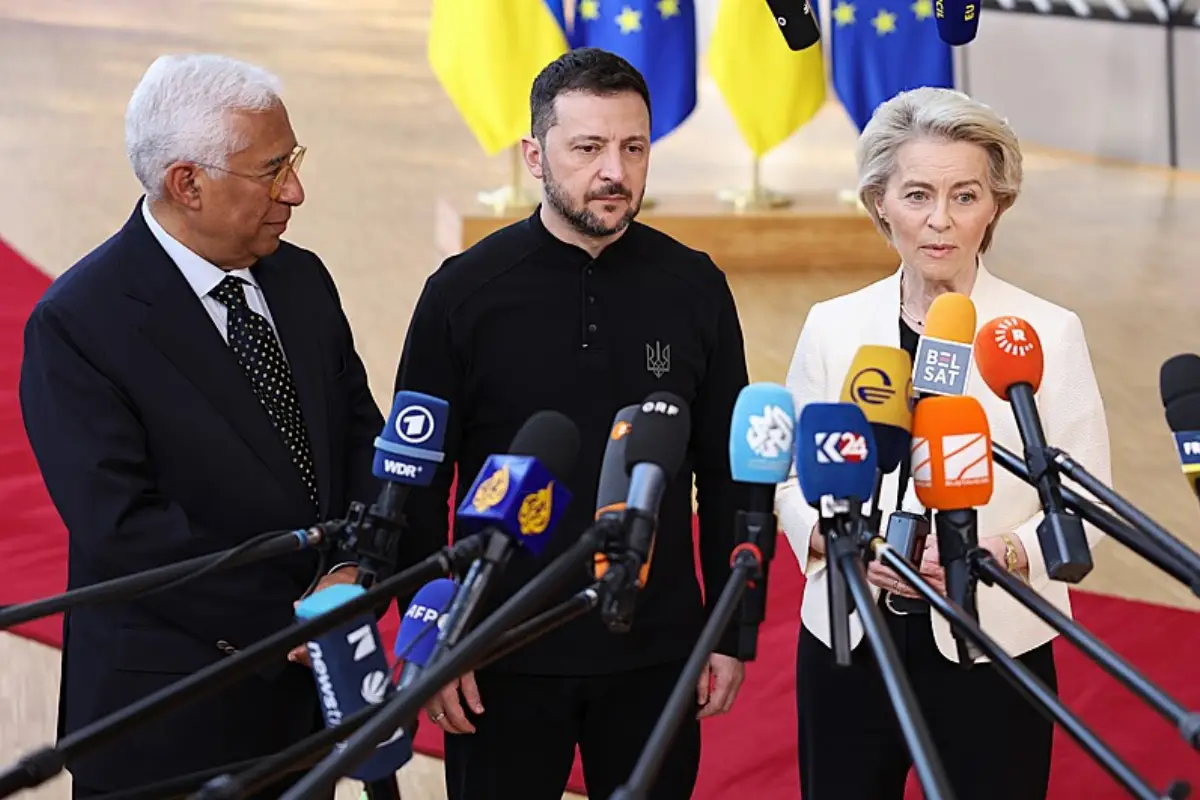
Extraordinary EU Council (2): Europe reacts
Everyone is more or less ready for the Defense challenge. But Orban warns Europe about Kiev

The extraordinary European summit held yesterday in Brussels (see AVIONEWS), which brought together leaders of member Countries to examine support for Kiev and the new ambitious common defense plan "Rearm Europe", proposed by the President of the European Commission Ursula Von der Leyen, was undoubtedly an unprecedented event. Precisely because of the issues discussed, among the participants, in addition to numerous representatives of European governments including Defense and Security Ministers, also the Ukrainian President Volodymyr Zelensky was a guest. The latter underlined the importance of concrete European support to counter Russian aggression and guarantee the security not only of Ukraine, but of the entire continent.
Also noteworthy is Von der Leyen's statement: "Our defence plan represents a historic turning point for Europe. With a common investment, we will strengthen our capacity to respond to threats and promote technological innovation in the defence sector. It is time to act in unity and turn our vision into reality".
The positions of some member Countries
During the summit, the various delegations presented their positions. Here are some of the most significant:
- Germany: expressed full support for the project, stressing the need for effective coordination to optimize resources and strengthen deterrence. German representatives stressed the importance of targeted investments in advanced technologies and strategic infrastructure.
- France: reaffirmed its commitment to European strategic autonomy, proposing greater integration in the joint production of weapons and defense systems. Keywords such as "independence" and "innovation" were repeatedly emphasized during the debate. Let us not forget that a few hours before the start of the summit, President Macron declared, following Washington's decision to suspend intelligence sharing with Ukraine, that France will continue to transmit all the information in its possession to Kiev. In addition, faced with the Russian threat, the occupant of the Elysée offered the EU the shelter of the French nuclear umbrella; in essence, he proposed extending its nuclear deterrence to European allies who do not possess an atomic arsenal.
- Spain and Italy: both stressed the need to balance military investments with domestic economic and social priorities, hoping that the plan would not compromise other strategic sectors but would function as a catalyst for overall growth.
- United Kingdom: Although no longer a member of the EU, the United Kingdom has followed the debate with great interest, stressing the importance of maintaining a strong security presence in Europe and promoting close transatlantic cooperation with NATO.
- Hungary on Ukraine: its denial regarding support for Kiev did not come unexpectedly. Yesterday evening, at the end of the extraordinary work, Prime Minister Orban declared, according to the concepts already expressed in recent days, "if now the United States stops financing the war, why should the EU member states have the possibility to carry this war to the end? Today it seems that I have vetoed. But within a few weeks they will meet and it will be discovered that there is no money for these objectives". According to Orban, "in Europe an idea is being born that wants to support Ukraine while it destroys Europe from an economic point of view". The Prime Minister then responded to the statements of the President of the European Council Antonio Costa, according to whom Hungary "is isolated" in the EU. "Hungary is not isolated, it is the EU that is isolated from the United States", he replied.
The Brussels Summit also addressed the prospects of integration with NATO and coordination at global level, emphasizing the importance of a common response to international security challenges.
AVIONEWS - World Aeronautical Press Agency